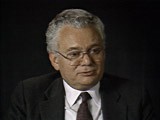You searched for: used%E4%BC%97%E7%AD%B9%E7%90%86%E8%B4%A2%E9%A1%B9%E7%9B%AE%E5%AE%9A%E5%88%B6%E5%BC%80%E5%8F%91%E3%80%90tg%EF%BF%BD%EF%BF%BD%EF%BF%BD%EF%BF%BD%EF%BF%BD%EF%BF%BD%EF%BF%BD%EF%BF%BD%EF%BF%BD%40ek7676%E3%80%91%E5%B9%B3%E5%8F%B0%E5%8C%85%E7%BD%91%E6%90%AD%E5%BB%BAust%E4%BC%97%E7%AD%B9%E7%90%86%E8%B4%A2%E9%A1%B9%E7%9B%AE%E5%AE%9A%E5%88%B6%E5%BC%80%E5%8F%91%E3%80%90tg%EF%BF%BD%EF%BF%BD%EF%BF%BD%EF%BF%BD%EF%BF%BD%EF%BF%BD%EF%BF%BD%EF%BF%BD%EF%BF%BD%40ek7676%E3%80%91%E5%B9%B3%E5%8F%B0%E5%8C%85%E7%BD%91%E6%90%AD%E5%BB%BAinhrgdhghm
<< Previous | Displaying results 1741-1750 of 1832 for "used%E4%BC%97%E7%AD%B9%E7%90%86%E8%B4%A2%E9%A1%B9%E7%9B%AE%E5%AE%9A%E5%88%B6%E5%BC%80%E5%8F%91%E3%80%90tg%EF%BF%BD%EF%BF%BD%EF%BF%BD%EF%BF%BD%EF%BF%BD%EF%BF%BD%EF%BF%BD%EF%BF%BD%EF%BF%BD%40ek7676%E3%80%91%E5%B9%B3%E5%8F%B0%E5%8C%85%E7%BD%91%E6%90%AD%E5%BB%BAust%E4%BC%97%E7%AD%B9%E7%90%86%E8%B4%A2%E9%A1%B9%E7%9B%AE%E5%AE%9A%E5%88%B6%E5%BC%80%E5%8F%91%E3%80%90tg%EF%BF%BD%EF%BF%BD%EF%BF%BD%EF%BF%BD%EF%BF%BD%EF%BF%BD%EF%BF%BD%EF%BF%BD%EF%BF%BD%40ek7676%E3%80%91%E5%B9%B3%E5%8F%B0%E5%8C%85%E7%BD%91%E6%90%AD%E5%BB%BAinhrgdhghm" | Next >>
-
Benno Müller-Hill, Antje Kosemund, Paul Eggert, and Elvira Manthey describe the Euthanasia Program
Oral HistoryBenno Müller-Hill, professor of genetics at the University of Cologne and the author of Murderous Science, describes the Nazi "Euthanasia" Program, with oral history excerpts from Antje Kosemund, Paul Eggert, and Elvira Manthey. Antje Kosemund had a disabled younger sister who was admitted to Alsterdorf Institute, Hamburg, December 1933, at the age of three and was subsequently killed in 1944. Paul Eggert was a resident of the orphanage section of the Dortmund-Applerbeck institution from 1942-43 where he…
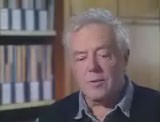
-
Katzenberger Case, March 13, 1942
ArticleThe Nuremberg Special Court ruled on the Katzenberger Race Defilement Case in 1942. Learn more about the outcome and impact of the case.
-
The Nazi Olympics Berlin 1936
ArticleThe 1936 Olympics in Berlin under Adolf Hitler's Nazi dictatorship were more than just a worldwide sporting event, they were also a show of Nazi propaganda.
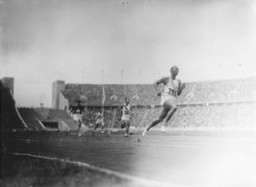
-
Air war in Flanders: Western Campaign
FilmThe Junkers (Ju) 87, known as the "Stuka," spearheaded the Blitzkrieg ("lightning war") attacks that were decisive in the western campaign in 1940. Stuka dive-bombers closely supported German forces on the ground. They destroyed enemy strong points, aircraft, and airfields, and spread panic in rear areas. Although slow and easily shot down by Allied fighters, the Stukas proved devastatingly effective in the German invasions of Poland and western Europe, where Germany enjoyed air superiority. Stuka…
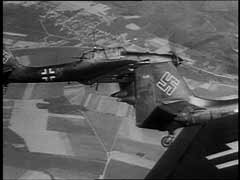
-
President Truman attends Potsdam Conference
FilmAfter the sudden death of Franklin D. Roosevelt in April 1945, Vice President Harry S. Truman became president of the United States. Here, President Truman meets with the heads of state of the Soviet Union and Great Britain (Joseph Stalin, Winston S. Churchill, and later Clement Attlee) in Potsdam, near Berlin, to discuss the future of defeated Germany. The leaders agreed to the partition of Germany and Berlin, Germany's capital city, into four zones of occupation: British, French, American, and Soviet.…
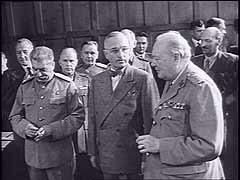
-
Lilly Appelbaum Malnik
ID CardLilly Appelbaum was born in Antwerp, Belgium to Jewish parents, Israel and Justine. Lilly's parents separated before she was born. Her father immigrated to the United States. Lilly had two older siblings, Leon (born 1927) and Maria (born 1925). She lived with her maternal grandparents in Antwerp. During the week, her mother lived in Brussels, where she operated a small workshop that made raincoats. 1933-39: Lilly and her grandparents lived in a predominantly Jewish neighborhood in Antwerp. She went to a…
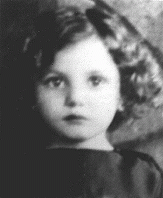
-
Fela Warschau describes liberation by British forces at Bergen-Belsen
Oral HistoryFela was liberated at Bergen-Belsen by the British army in 1945. She went to a displaced persons (DP) camp administered by the Americans in Feldafing, near Munich. She married in the DP camp in 1946, and eventually immigrated to the United States.
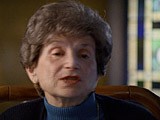
-
Helen (Helene Katz Wohlfarth) Waterford describes giving up her daughter to be sheltered
Oral HistoryAlthough originally from Germany, Helen was living in the Netherlands with her husband and young daughter when the Germans invaded in May 1940. Helen and her husband sent their daughter to non-Jewish friends, and went into hiding themselves. They stayed in a variety of places arranged by a friend who was active in the underground. On August 25, 1944, Helen and her husband were arrested. They were sent first to Westerbork and then to Auschwitz, where they were separated. Helen worked in the I. G. Farben…
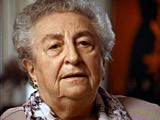
-
Madeline Deutsch describes ghettoization in Hungary
Oral HistoryMadeline was born into a middle class family in an area of Czechoslovakia that was annexed by Hungary in 1938-1939. Her father worked out of their home and her mother was a homemaker. Madeline attended high school. In April 1944 her family was forced into a Hungarian ghetto. The family lived in the ghetto for two weeks before being transported to Auschwitz. Madeline and her mother were separated from her father and older brother. Neither her father nor brother survived the war. A week after arriving in…
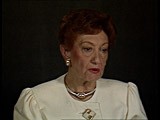
-
Thomas Buergenthal describes an emigration operation in an orphanage in postwar Germany
Oral HistoryThomas's family moved to Zilina in 1938. As the Slovak Hlinka Guard increased its harassment of Jews, the family decided to leave. Thomas and his family ultimately entered Poland, but the German invasion in September 1939 prevented them from leaving for Great Britain. The family ended up in Kielce, where a ghetto was established in April 1941. When the Kielce ghetto was liquidated in August 1942, Thomas and his family avoided the deportations to Treblinka that occurred in the same month. They were sent…
